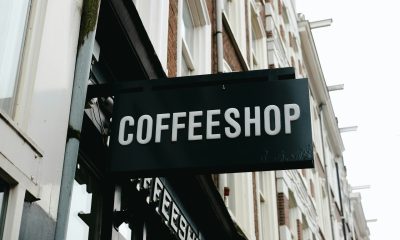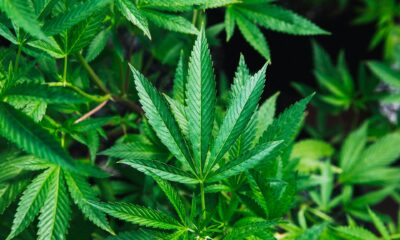Cannabis
Legal Cannabis Sales Debut in the Netherlands: Triumph or Growing Pains?
The Netherlands’ first month of legal cannabis sales highlights both progress and hurdles. Legalizing production aims to curb black-market influence and ensure safer products, but supply issues and limited variety challenge consumer expectations. Political shifts and cautious producers add uncertainty, while the experiment’s outcome could influence broader European cannabis policy.
The Netherlands, known worldwide for its coffeeshop model, has taken another step toward fully regulating its cannabis market. After years of preparation, delays, and political debate, the full-scale experiment in a legal cannabis supply chain has been up and running since June 2024.
The first month of legal sales has brought both successes and challenges that could shape the future of the country’s drug policy.
Why did the Netherlands decide to experiment?
Since the 1970s, the Netherlands has allowed the sale of small amounts of cannabis in coffee shops. However, production of the plant remained illegal, meaning that legal outlets used products sourced from the black market. The experiment, which began in 2017, aimed to test whether full legalization of cannabis production and supply could work in practice while eliminating the funding of organized crime.
The Netherlands has joined European leaders in cannabis regulation, such as Germany, Malta and Switzerland. The experiment involves ten municipalities, where around 80 coffee shops can sell marijuana grown by legal and licensed growers.
From delays to full implementation in the Netherlands
The first legal transactions took place in December 2023 in two municipalities: Breda and Tilburg. The process was only extended to the remaining eight locations in June 2024. Delays were due to numerous logistical issues, such as obtaining building permits, lack of appropriate financing and problems opening bank accounts for licensed producers.
To allow for a smooth transition, the government introduced a “transition phase,” during which coffee shops could sell both black-market and legal products until licensed producers could provide adequate supply. That phase was set to end in September 2024, although the government has signaled it could be extended.
Manufacturers’ unique challenges
The experiment involves ten licensed producers in the Netherlands, including international player Village Farms, whose Dutch subsidiary operates under the name Leli Holland. The company has deliberately delayed full production due to concerns about the uncertain political and market situation.
“We understand that such projects can encounter political obstacles. That is why we decided to proceed cautiously to avoid unnecessary financial losses,” says Orville Bovenschen, CEO of Leli Holland. The company plans to introduce about ten varieties of hemp to the market, focusing on the quality and safety of the products.
Consumer needs vs. reality
Dutch consumers are used to a wide range of cannabis varieties and products in coffee shops. The government has stressed that “quantity, quality and variety” are key to avoiding an increase in the black market. However, just months into the experiment, some coffee shops have expressed concerns about limited offerings and supply issues.
Producers like Leli Holland assure us that the quality of legal products far exceeds that of the black market. Legal cultivation allows for full control over the production process, which means no pesticides and the ability to accurately test THC and CBD content .
Politics and the Future of the Experiment
The political shift in the Netherlands, where a new, right-wing government was recently installed, raises questions about the future of the experiment. Is the project a step towards full legalization or a one-time test? Experts point out that the success of the Dutch experiment could influence the approach of other European countries that are watching the process closely.
__
(Featured image by Patrik Felker via Pexels)
DISCLAIMER: This article was written by a third party contributor and does not reflect the opinion of Born2Invest, its management, staff or its associates. Please review our disclaimer for more information.
This article may include forward-looking statements. These forward-looking statements generally are identified by the words “believe,” “project,” “estimate,” “become,” “plan,” “will,” and similar expressions. These forward-looking statements involve known and unknown risks as well as uncertainties, including those discussed in the following cautionary statements and elsewhere in this article and on this site. Although the Company may believe that its expectations are based on reasonable assumptions, the actual results that the Company may achieve may differ materially from any forward-looking statements, which reflect the opinions of the management of the Company only as of the date hereof. Additionally, please make sure to read these important disclosures.
First published in Fakty Konopne. A third-party contributor translated and adapted the article from the original. In case of discrepancy, the original will prevail.
Although we made reasonable efforts to provide accurate translations, some parts may be incorrect. Born2Invest assumes no responsibility for errors, omissions or ambiguities in the translations provided on this website. Any person or entity relying on translated content does so at their own risk. Born2Invest is not responsible for losses caused by such reliance on the accuracy or reliability of translated information. If you wish to report an error or inaccuracy in the translation, we encourage you to contact us

-

 Cannabis1 week ago
Cannabis1 week agoCannabis and the Aging Brain: New Research Challenges Old Assumptions
-

 Crowdfunding6 days ago
Crowdfunding6 days agoAWOL Vision’s Aetherion Projectors Raise Millions on Kickstarter
-

 Fintech2 weeks ago
Fintech2 weeks agoFintower Secures €1.5M Seed Funding to Transform Financial Planning
-

 Impact Investing1 day ago
Impact Investing1 day agoItaly’s Listed Companies Reach Strong ESG Compliance, Led by Banks and Utilities

























